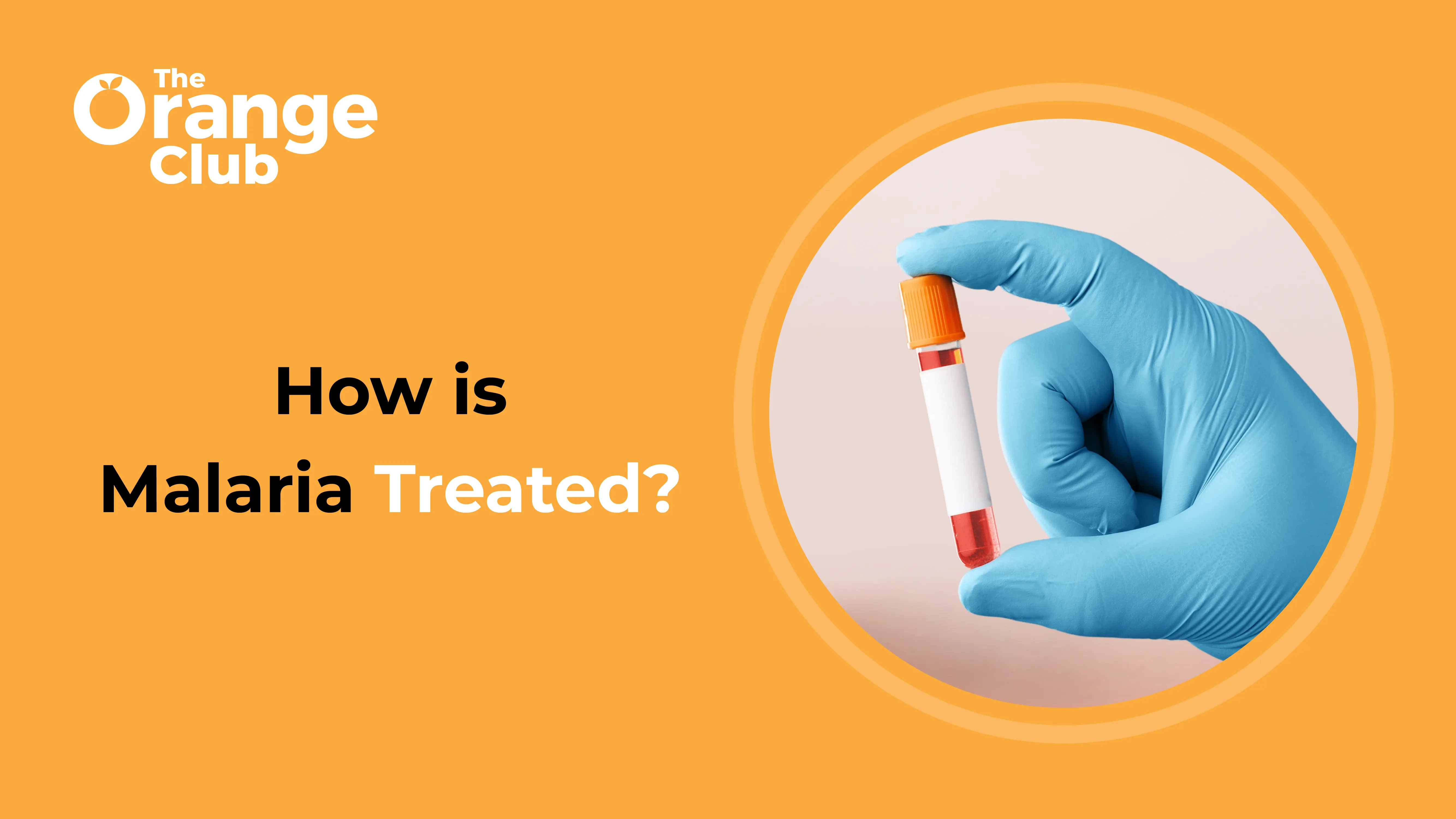Search for tests or checkups
SupportHow Is Malaria Treated? - Treatments Explained

Malaria can be caused by different parasites, and the treatment plan depends on which one is identified. In our latest podcast, Dr. Roshni Jhan Ganguly explained to Dhruv Gupta, Co-founder of Orange Health Labs, how doctors decide the best course of care.
Watch the video here
Treatment Based on Type
As Dr. Ganguly explains in the video, malaria is not treated with a single medicine. The approach depends on the parasite detected through a peripheral blood smear test. For the more common forms, doctors usually prescribe a standard course of tablets to clear the infection, sometimes with an additional medicine to prevent it from coming back. For the more severe type, such as Plasmodium falciparum, treatment involves a stronger combination therapy to bring it under control quickly. In mixed infections, a similar combination may be used.
Safety Checks Before Medication
Before prescribing one of the common malaria medicines, doctors often test for a condition called G6PD deficiency. This is a simple enzyme test that ensures the medicine can be taken safely. As Dr. Ganguly notes, “If a patient has G6PD deficiency, giving certain drugs can be harmful, which is why testing first is so important.”
When Hospital Care Is Needed
Most cases of malaria improve with tablets taken at home. In very severe infections when symptoms are persistent or organs are affected, patients may need to be admitted for IV medication and close monitoring.
Takeaway
Malaria treatment is tailored to the type of parasite and the patient’s needs after careful diagnosis. With proper testing and timely care, treatment is highly effective and recovery is smooth. We cover this in detail in Episode 10 of The Orange Club Podcast - The Truth About Monsoon Diseases: What Causes Malaria, Dengue & Chikungunya

Dengue Testing: Key Steps and Precautions

Genetics and Thyroid Health: How Your DNA Influences TSH Levels
